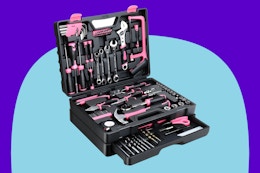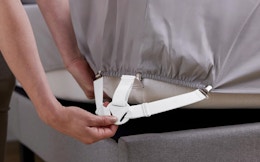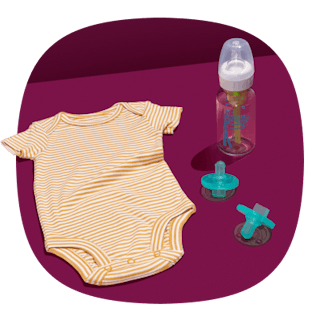Credit can be confusing if you don’t know how it works behind the scenes. For example, did you know that applying for a new credit card could actually hurt your credit score? Paradoxically, opening a new credit card could help raise your score by raising your credit limit and lowering your credit utilization .
Even more people are surprised when they hear that closing a credit account, especially an older one, could have a negative impact on their credit score. It’s all a little overwhelming at first, but after you read this article, you’ll understand the ins and outs of new and old accounts like a credit pro.
Be sure to download The Krazy Coupon Lady app for even more tips on using your credit responsibly.
Applying for new cards could ding your score.

There are two types of credit inquiries: hard and soft. Soft credit inquiries are usually used to see if you’re pre-approved for a credit product, and these checks don’t impact your overall score.
But pre-approvals are not guaranteed. You’ll need a hard inquiry done to get an official offer for a credit product like credit cards, and these hard inquiries can ding your score. Usually, the impact is five points or less, but the severity of it will depend on your overall credit profile.
Typically, these dings are deemed as acceptable losses if you go on to use the credit card responsibly. That’s because actually using the credit card could end up raising your score.
Related: Best Credit Cards for College Students Building Their Finances
Opening a new credit card can up your total credit limit.
When a bank or other lender offers you a credit card, that card will come with a limit. The higher your credit limit, the better.
That’s because a major factor in your credit score is credit utilization. Credit utilization measures how much credit you’re using versus how much is available to you. When you have a higher credit limit (as long as you’re not maxing it out) it should help your utilization rate go down.
For example, let’s say you have a total credit limit of $10,000 across all cards. You currently owe $4,000, which puts your credit utilization at 40%.
Then you open a new card that has a $2,000 limit. Your total credit limit is now $12,000, and the $4,000 you owe is only 33% of it.
It’s good that you got the number lower, but ideally, you want your credit utilization to be under 30% or even lower.
Using a new card responsibly could raise your credit score.
You don’t want to get too intense with low utilization rates, though. You will want to actually use your new credit card because zero utilization can reflect negatively on your score, too. Think of it this way: if you never actually use credit, how do banks know you’re able to use it responsibly?
Let’s say you had that $12,000 credit limit. You’d want to charge no more than $3,600 per month, assuming you can pay that much off. For a really great score, you might want to keep your charges to no more than $1,200 per month.
You’d want to let that number be reflected on your statement. If you pay it off too soon, the credit card company will report $0 credit utilization at the end of your statement cycle, which would be zero utilization. You want to show that you’re using something, just not too much.
Make sure you pay your statement in full as soon as it’s delivered and prior to the due date. Otherwise, you could incur late payment fees, interest rate hikes, and even negative line items on your credit report.
If you’re not making your payments on time, that’s one of the worst things you could do for your credit report. It has an even bigger impact than credit utilization.
But if you are making on-time payments — especially if they’re in-full — you could see an increase in your credit score. It’s not necessarily using a new credit card that ups your score. The important thing is that you’re using it responsibly.
Opening too many credit cards at one time can cause problems.
Here’s the thing: opening too many credit cards at one time can be a red flag. Usually, if you apply for cards within a few days of each other because you’re comparison shopping, you’ll be okay. But opening a lot of new credit at once raises concerns among lenders.
This can negatively impact your score by dragging down the average length of your credit history. The longer your credit history, the less of an impact it will have, but it’s still an important consideration.
TIP: Building up the length of your credit history can be hard when you’re starting from zero. Here are the best credit cards for college students in that situation.
Another problem comes with credit issuers themselves. Creditors don’t only look at your credit score. They may also look at your entire credit report. Some banks, like Chase, won’t issue you a new card if you’ve opened up too many in too short a time frame.
The Chase rule is five cards in 24 months, or 5/24. That means if you want to open a Chase credit card and you already have five cards you’ve opened in the past two years at any bank, you’re likely to be denied even with a great credit score.
Some of these rules are set to avoid taking on risky debtors. Other times, these rules are in place to prevent credit card hacking, which can be a lucrative gig for you if you’re responsible with credit. However, it’s a net loss to the bank if you actually are responsible and aren’t incurring interest or other fees.
Closing a credit card could shorten the length of credit history.

Think twice before you close that credit card! Especially if it’s one of the first ones you got. Every loan and credit card you have impacts the length of your credit history, and the length of your credit history makes up 15% of your FICO score.
That means every time you close an existing credit account, especially the older ones, you risk lowering the average length of your credit history.
Sometimes you might not close a card on purpose. Hopefully your longest-held card is one that didn’t come with an annual fee because if you’re not paying those, your card could be closed involuntarily.
Some banks will close your credit card after you haven’t used it in a while. Make sure you know your bank’s policies, or you might inadvertently get the account closed. This can lower the length of credit history. You don’t have to use the card every day, but using each card on occasion is a good way to ensure it stays open.
Closing a credit card could raise your credit utilization.
When you close a credit card, you’re shrinking your credit line. Let’s say you closed that card with the $2,000 limit, but you still owed $3,600 across all accounts. Before you closed the card, you had a total credit limit of $12,000 and a 30% credit utilization rate.
But now that you’ve removed that $2,000 credit line, your total credit limit is $10,000 and the $3,600 owed becomes 36% credit utilization. This could impact your credit score negatively.
What if I lack the self-control to stop spending on this thing?
Stressing about credit utilization and length of credit history is one thing when you’re using credit responsibly. But if you’re digging yourself deeper and deeper into consumer debt every month because you just cannot stop yourself from spending, they become secondary concerns.
One thing you could try before making the big decision of closing the card is literally freezing it in a block of ice so you can’t use it or will have to think really hard about your purchase through the melting process. It sounds extreme, but it may be less extreme than closing the account altogether.
If that’s not doing the trick, though, you may be better off closing the card in the long run. When you’re spending more than you can afford to pay off, not only is your credit score likely to suffer, but you’re likely to drown in late fees and exorbitant interest charges.
Just be sure to know all the consequences before taking that drastic step. Your risk-benefit analysis may reveal that keeping the card open and available does more harm than good. That being said, you need to actually do the math while being honest about your own credit behaviors (and capacity to change them.)
After you’ve fixed the root of those spending habits, you can rebuild your credit using the best credit cards for bad credit .
Download the KCL app to add and redeem coupons in store






















































